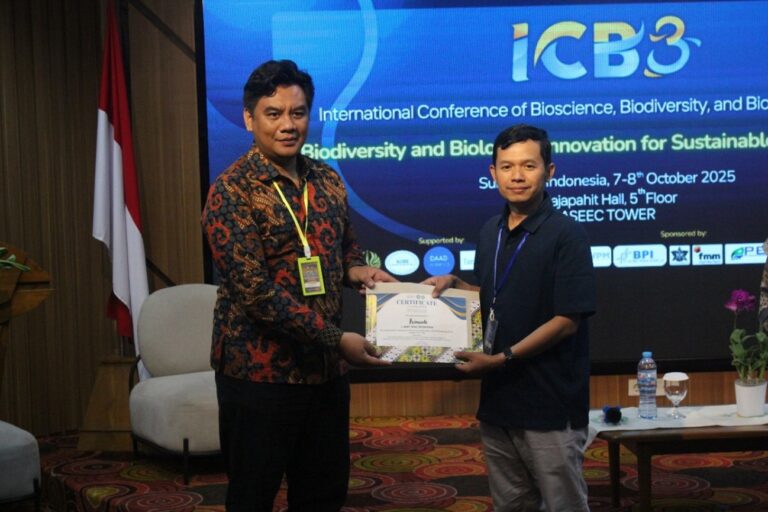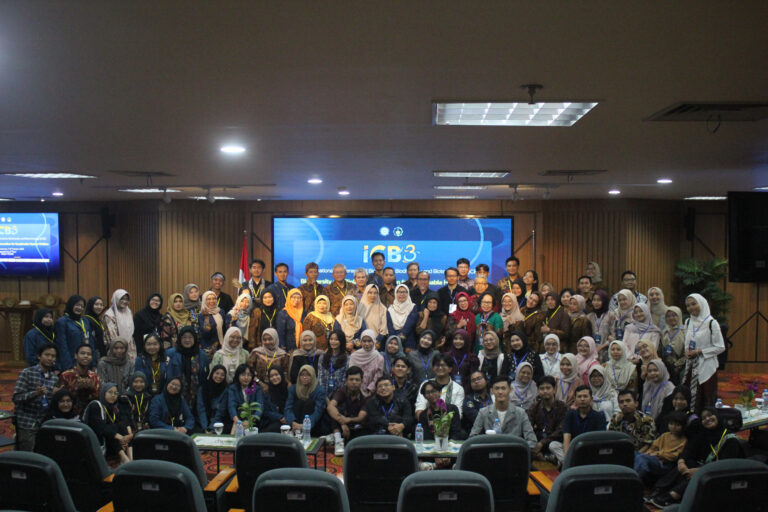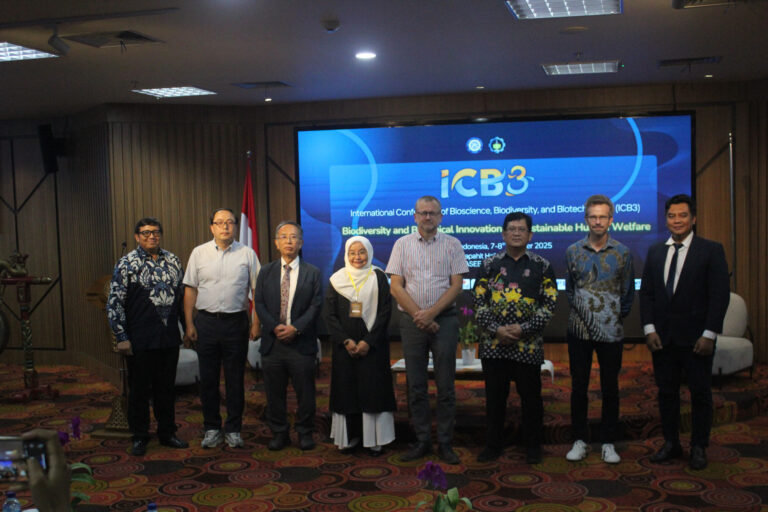
A Global Collaboration Platform for Biological Innovation and Sustainability
Universitas Airlangga (UNAIR), through the Department of Biology, Faculty of Science and Technology (FST), in collaboration with the Department of Biology, Faculty of Science and Data Analytics, Institut Teknologi Sepuluh Nopember (ITS), successfully held the 1st International Conference of Bioscience, Biodiversity, and Biotechnology (ICB3) on October 7–8, 2025 at ASEEC Tower, Universitas Airlangga.
The conference carried the theme “Biodiversity and Biological Innovation for Sustainable Human Welfare” and served as an important forum that brought together researchers, academics, professionals, and policymakers from various countries to discuss strategic issues in the fields of bioscience, biotechnology, and biodiversity conservation.
Attended by Distinguished National and International Scientists
The event was officially opened by the Rector of Universitas Airlangga, represented by Dr. Purwo Sri Rejeki, dr., M.Kes., Director of the Directorate of Research and Innovation. Also present were Vice Rector of ITS, Prof. Nurul Widiastuti, S.Si., M.Si., Ph.D.; Dean of FST UNAIR, Prof. Dr. Miratul Khasanah, M.Si.; Dean of the Faculty of Science and Data Analytics ITS, Prof. Dr. Dewi Hidayati, M.Si.; and Chairman of the Indonesian Biology Consortium (KOBI), Prof. Dr. Budi Setiadi Daryono, M.Agr.Sc.
The conference featured several world-renowned experts as keynote speakers, including: Prof. Stefan Werbrouck (Ghent University, Belgium); Dr. Sebastian Ferse (Leibniz Centre for Tropical Marine Research, Bremen, Germany); Prof. Toshio Hasegawa (Saitama University, Japan); Prof. Hyun-Woo Kim (Pukyong National University, South Korea); Prof. Haryo Dwito Utomo (Institut Teknologi Sepuluh Nopember, Indonesia)
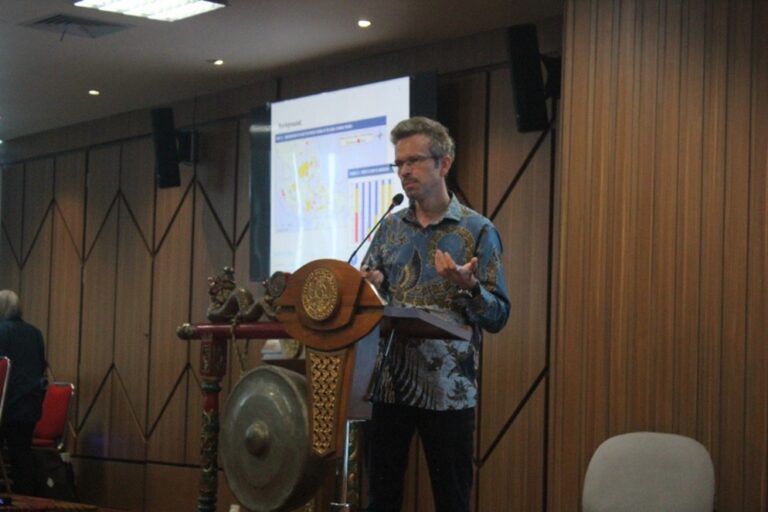
More than 250 Participants from 15 Countries
Conference Chairs Dr. Dwi Kusuma Wahyuni (Department of Biology, UNAIR) and Dr. Triono Bagus Saputro (Department of Biology, ITS) reported that the conference was attended by more than 250 participants from various institutions across Indonesia and abroad. Participants joined both on-site and online from Belgium, Australia, Germany, South Korea, Japan, the United States, Nigeria, Uzbekistan, Russia, India, Morocco, and Thailand, among others.
In conjunction with the international conference, the event also hosted the National Meeting of the Indonesian Biology Consortium (KOBI), which gathered heads of biology study programs from universities across Indonesia to strengthen national networks in biology and biotechnology research.
Biodiversity and Biological Innovation for Human Welfare
In his remarks, the Rector of Universitas Airlangga emphasized that the conference theme reflects UNAIR’s commitment to promoting scientific innovation and global collaboration to address sustainability challenges.
“The topics discussed, ranging from bioprospecting, bio-based innovation, conservation, biotechnology, bioinformatics, to the sustainable blue economy, are all essential pillars for building a better, healthier, and more sustainable future,” he stated.
Meanwhile, the Conference Chair, Dr. Dwi Kusuma Wahyuni, highlighted that the conference serves as a valuable momentum for interdisciplinary and international collaboration.
“Nature is not only a heritage to be protected but also a source of innovation to be wisely utilized. By combining scientific research, technological advancement, and traditional wisdom, we can achieve sustainable development that respects both people and nature,” she remarked.
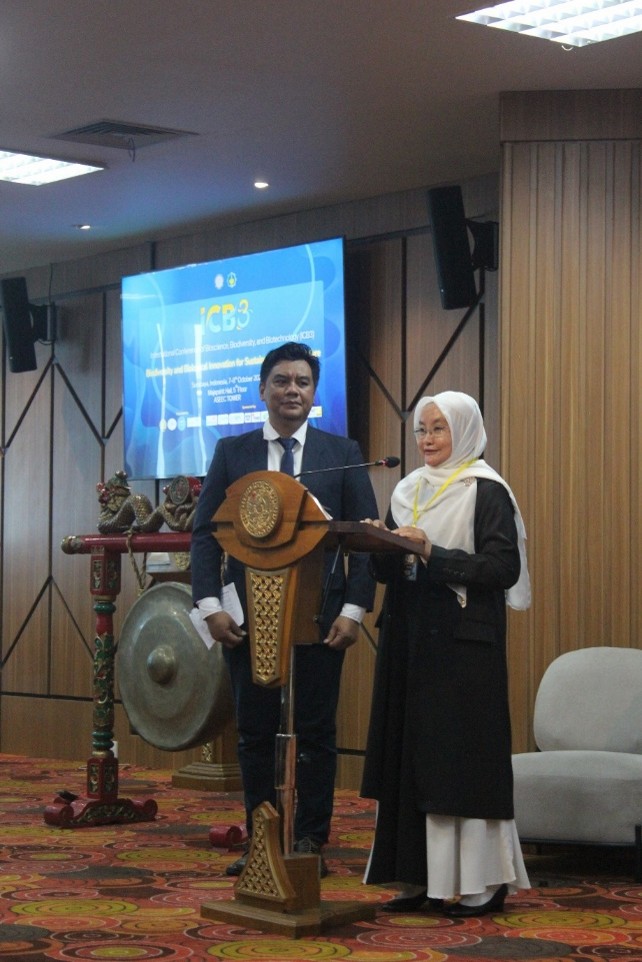
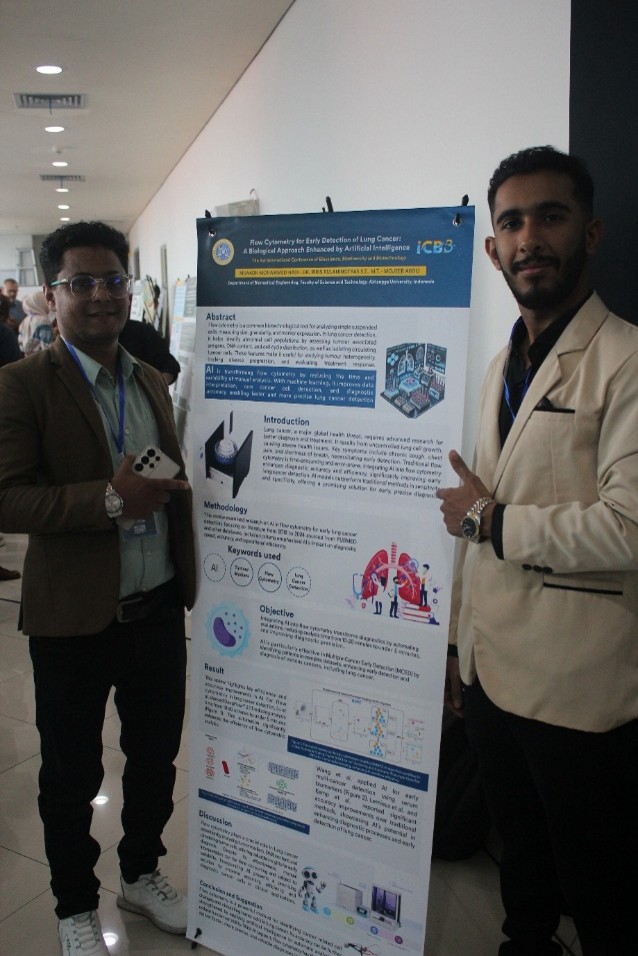
Hope for Sustainable Collaboration
The ICB3 Conference is expected to serve as a foundation for long-term research collaboration among universities, research institutions, and industries in the fields of biosciences and biotechnology.
Dr. Sebastian Ferse from the Leibniz Centre for Tropical Marine Research, Bremen, Germany, expressed his positive impression of the conference and hoped it would continue in the future as an excellent platform to nurture young researchers.
Similarly, Prof. Toshio Hasegawa from Saitama University, Japan, also conveyed his wish that this collaboration would not be limited to the conference alone but would further expand into joint research involving undergraduate, master’s, and doctoral students.
